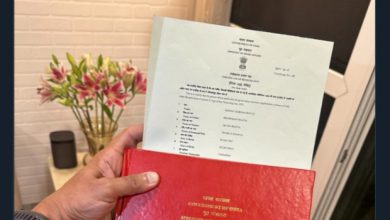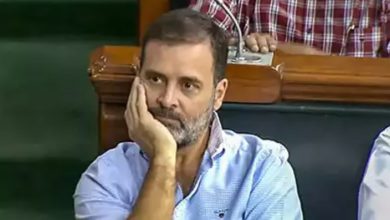Memo to Nitin Gadkari: Shift to e-vehicles won’t happen at gun point, govt needs to handhold auto firms

New Delhi: India’s car, two-wheeler and truck makers are having a rough time in these last few months. The government’s constant policy changes appears to be like holding the auto industry at gun point, showing scant regard to the industry’s health, investment cycle or capacity to adapt. First, it was the abrupt advancement of the toughest emission norms, BS VI, two years before the deadline to 2020, then it was the flip-flop over taxes on large cars and SUVs which the government itself had neglected while drafting GST slabs. And now, the threat to the automobile industry to seamlessly switch over to electric vehicles. Or else.
Minister for Road Transport and Highways Nitin Gadkari may have earned brownie points with the trigger happy Modi sarkar for his pronouncements at the SIAM Annual Convention in the Capital yesterday, but these dire threats are just that: threats, with no policy basis and no mandation under law as of now. Gadkari said he wants the pace of car sales in India to slow down as growth in vehicle sales, particularly those running on diesel, is choking roads and causing increased pollution,
but I wish it from my heart that your growth should be less. If this growth continues, I will need to add one more lane to national highways, which will cost a whopping Rs 80,000 crore” Gadkari told stunned representatives of the car industry.
Petrol and diesel vehicles will need to make way for electric powertrains and engines running on other fuel variants such as ethanol and biofuels. “I am going to do it, whether you like it or not. I will bulldoze. Petrol, diesel banaane walon kaa band-baajaa bajaanaa hai (We will take the makers of petrol/diesel engine vehicles to task),” Gadkari said.
Under what law sir? Is making petrol or diesel vehicles banned in the country? Can the government force automakers to shift to other fuels by simply threatening them with dire consequences? Gadkari may be invoking the right sentiment but he seems oblivious to ground realities. The government needs to hand-hold the automobile industry if it wants its lofty (and commendable) climate goals to be achieved on time. Parting shots at industry conventions won’t help.
The government has already declared its intent to have only electric vehicles in India by 2030. This is the right approach to improve India’s standing in the global climate pecking order, reduce our fuel import bill and make transportation least polluting across the country. But this cannot be achieved by bulldozing a multi-million dollar manufacturing industry without providing for its needs to achieve this lofty goal. Is there a policy roadmap ready for this once-in-a-century move? There are myriad difficulties in the road to all-electric vehicle market by 2030.
For one, electric cars are still too expensive to make sense in India. This piece notes that the upfront cost of an “affordable” electric car is still just the US average for a new car (which is mighty expensive compared to the average price of a new car in India). India doesn’t have a strong electric car manufacturing base and puts up steep barriers to cars imported into the country. Tesla CEO Elon Musk noted a few weeks ago that Tesla’s entry into India was going to be delayed by local production requirements there.
So, the first step for the Modi government would be to encourage affordability of these cars through policy interventions and easier import norms. One such thing will be to encourage the production of batteries – the costliest component of an electric car – in India to lower the total cost of producing such vehicles. It also needs to significantly enhance other supporting infrastructure, such as charging stations, for such vehicles – remember, as of now creating such an infrastructure is largely seen as a private sector endeavour. There also needs to be initially some sort of a subsidy programme to encourage use of alternate fuel vehicles, with perhaps government departments switching away from fossil fuel powered vehicles, en masse.
Another anomaly that the Society of Electric Vehicle manufacturers has flagged is the need to quickly address the higher GST on the batteries, when sold separately at 28 percent against 12 percent sold with the vehicles. Lithium batteries usually need to be sold separately from the electric two wheelers to give a choice of the batteries at the point of sale. Such batteries have become significantly costlier because of the 28 percent GST, leading to a big dampener for the electric two wheeler customers.
Also, the government should walk the talk and meanwhile try to improve the scant public transport system across Indian cities. Gadkari himself said yesterday that car usage has seen a rapid rise, urging the car industry to find parking solutions. Enhancing public transport infrastructure would be a better and more sustainable solution.
Now let us look at the two other hasty decisions which this government has taken in the last few months, which could seriously dent the efficiency of the automobile industry. In January, the government decided that India will move up to the toughest emission standards of BS-VI from BS-IV by 2020, two years early and skipping an intermediate level. Upfront, this will make cars, sports utility vehicles (SUVs), trucks and buses more expensive.
Auto firms, parts makers and oil refiners will end up spending anywhere between Rs 70,000 crore and Rs 90,000 crore on the change, Mintreport said. No one is criticizing the eventual need to move to tough emission norms. But bring forward the implementation by two whole years? Bosch Ltd, the world’s largest manufacturer of fuel injection systems and engine technologies, has warned the government that such a move could lead to safety and quality problems, the Mint report added. Bosch has said it would take four-and-a-half years of lead time for design, application and validation of new engine technologies to move from BS-IV to BS-V, and a similar time to graduate to BS-VI.
Then, the mess up on tax slabs for large cars and SUVs under GST. No one is again criticizing the government for keeping these fuel guzzlers at the maxium slab as far as incidence of total taxation goes. But why reduce the taxed first and then raise them within weeks? It confuses the industry, plays havoc with inventories and pipelines and skews the sales mix for months.
Ultimately, policy making should be a consensual exercise where stakeholders are consulted before any diktat is issued. This is where the government seems to be erring, repeatedly.







